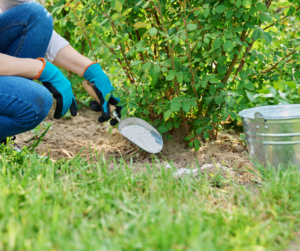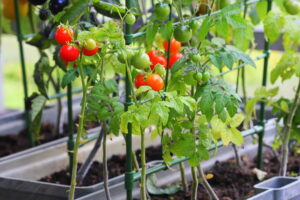The Role of Secondary Nutrients in Plant Development

When setting plants up for growing success, many people focus on the three macronutrients that support development: nitrogen, phosphorus and potassium. Nitrogen gives plants the energy needed to grow and is the primary source of plant protoplasm. It helps plants synthesize amino acids, chlorophyll, nucleic acids, proteins, and enzymes. Phosphorus is vital for healthy roots: the basis of your seedling’s success. It is a key component of ATP (Adenosine Triphosphate), the energy unit of plants. Potassium supports overall plant growth, activating dozens of important enzymes for protein synthesis, sugar transport, nitrogen and carbon metabolism, and photosynthesis. It is especially beneficial for flower response. While the “big three” all have their importance, secondary nutrients also play a significant role in your plant development. These nutrients need to be significantly higher than micronutrients, but slightly less than macronutrients. Learn which nutrients fall into this category and how they help your plants.
Essential Secondary Nutrients for Your Plant Development
Magnesium
How it supports plant development: Magnesium is important because it is the central core of chlorophyll molecules in your plant’s tissue. If there is a shortage of chlorophyll, there will be poor or stunted growth. Magnesium is also used to activate enzymes, complex substances that impact compounds related to a plant’s metabolism.
Sources: Many soils provide sufficient magnesium. It is held on the surface of clay and organic matter particles, though it is not necessarily available to your plants in that form. Dolomitic limestone is considered a reliable source of magnesium suitable to support crop growth. Note: acidic soils, in particular, are known for inhibiting the uptake of magnesium.
Sulfur
How it supports plant development: Sulfur helps support growth and development, playing a role in photosynthesis, respiration, and the formation of cell membrane structures. It is mainly absorbed as sulfate from the soil and then translocates to plastids in leaves. Plants lacking in sulfur may experience a series of morphological and physiological processes.
Sources: Sulfur is present in many soils, brought up from natural soil decay and plant matter. Manure is also considered a great source of sulfur.
Calcium
How it supports plant development: Calcium is necessary for structural roles in the cell wall and membranes. It acts as a counter-cation, activates plant enzymes, and sends signals to plant walls to conduct growth activities.
Sources: Calcium is not mobile in plants, so you need to use calcium supplements like fertilizers containing calcium nitrate or calcium-magnesium. Dolomite and bone meal are organic sources of calcium.
Other Considerations Beyond Secondary Nutrients for Plant Development
While macronutrients and secondary nutrients are key contributors to plant health, there are other important considerations. When growing cannabis, for example, you need to keep other things in mind, including:
- Soil Choice: There is a common misconception actual soil is required for farming and gardening. For cannabis growing, we recommend using a mix of Canadian Sphagnum Peat Moss or coco coir amended with horticultural perlite or vermiculite.
- Soil Porosity: Porosity supports optimal plant growth by increasing oxygen at the root zone, ensuring water retention, allowing for delivery of nutrients to roots, and more. Harvest Hero comprises of Perlite and Diatomaceous Earth to increase the porosity of your media mix.
- pH Level: When considering soil mediums, a neutral pH is always preferred. pH values for Canadian Peat Moss, for example, are well within the acceptable ranges of cannabis culture, even though it has a slightly acidic nature. Be mindful, Diatomaceous Earth (DE) is slightly alkaline in nature, which will have a buffering effect over the slightly acidic nature of Canadian Peat Moss, rendering the mix neutral pH.
Harvest Hero Enhanced Perlite Mix Supports Plant Development
At Harvest Hero, we know nutrients are key to your plant’s growing success. Enhanced Perlite Mix delivers essential nutrients to the soil as needed by the plants, saving you money on additional fertilizer and supplemental costs during vegetative growth. Earlier this year, researchers at NC State embarked on a 100+ plant grow study containing Harvest Hero Enhanced Perlite Mix along with additional test groups of Sunshine White Peat Moss mixed with horticultural perlite at a ratio of 75/25. Nutrient accumulation results included:
- Improve Soil Conditions for an Increase in Phosphorous Accumulation.
- Improve Soil Conditions for an Increase in Potassium Accumulation.
- Improve Soil Conditions for an Increase in Nitrogen Accumulation.
Whether you are growing cucumbers or cannabis, our proprietary, 3-in-1 soilless blend improves your soil quality, helping your plants get the nutrition they need to ensure robust, vigorous growth. This patent-pending soilless mix is great for recreational growers, professional horticulturists, and hobbyist gardeners. Shop for Harvest Hero Enhanced Perlite Mix today!



